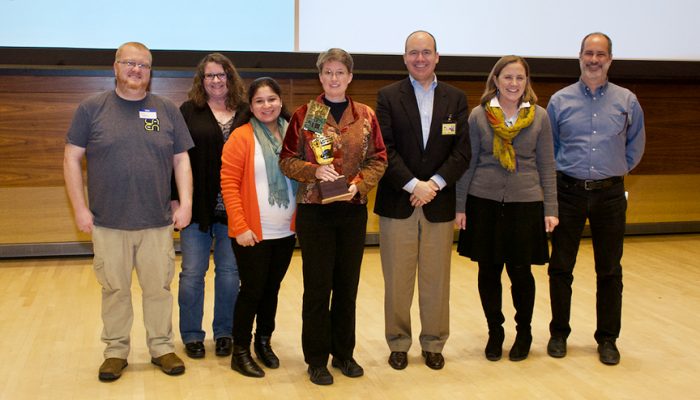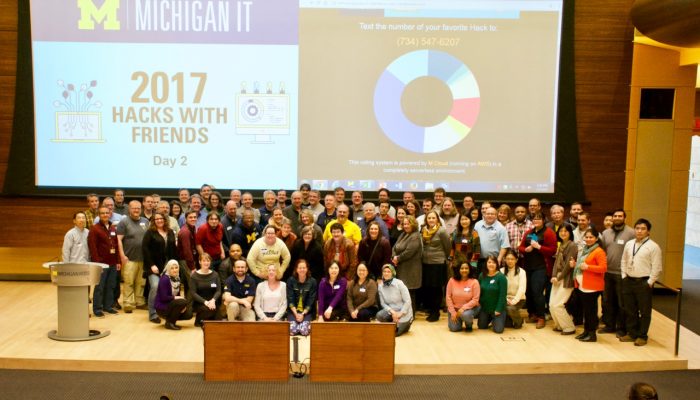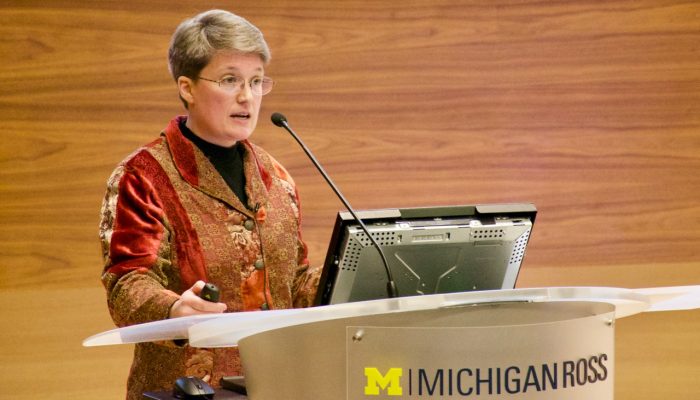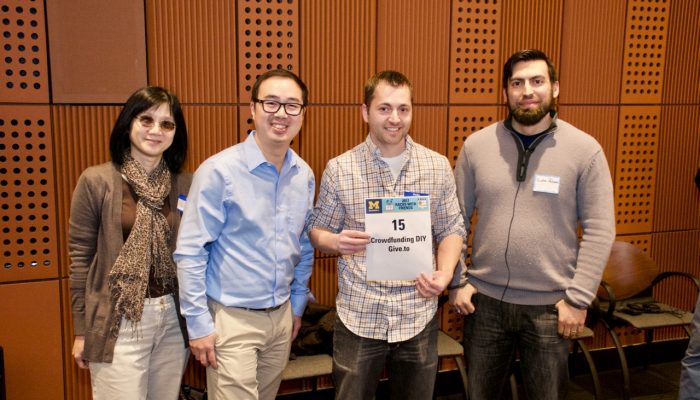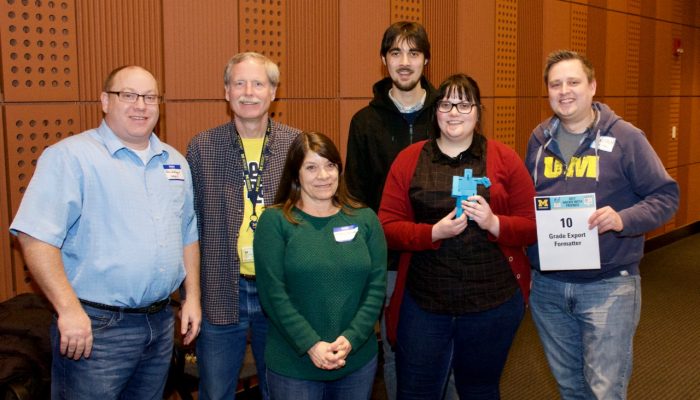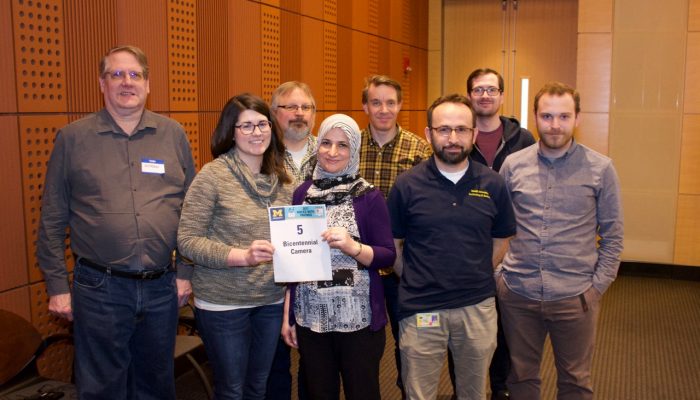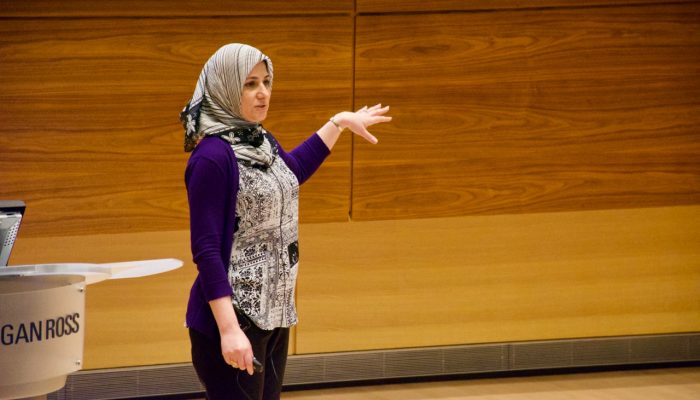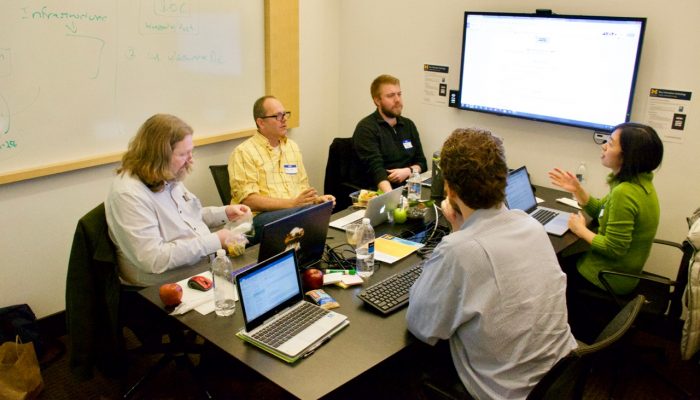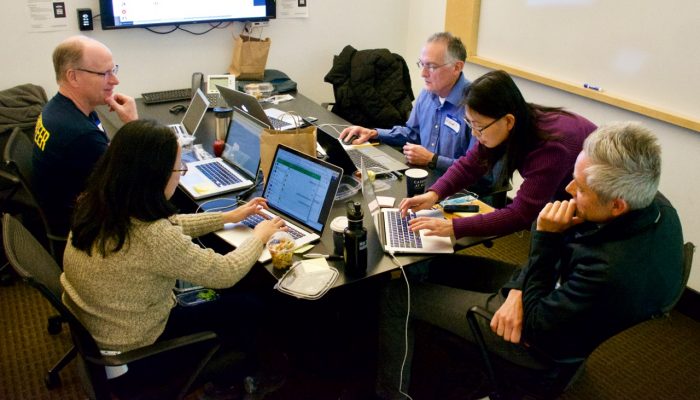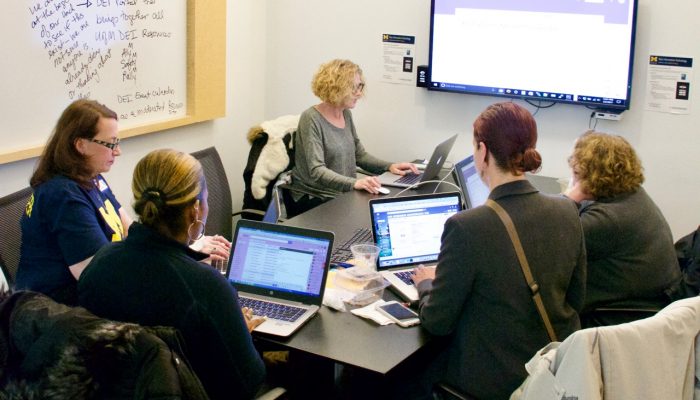What can Michigan IT accomplish in two days? It turns out, quite a lot.
Hacks with Friends, which took place March 2–3, was overflowing with new and innovative ideas. Over 100 Michigan IT staff came together with explosive creativity, demonstrating the value of cross-pollination and, in many cases, the expertise to build working prototypes in 10 working hours across two business days.
“This event highlights the spirit of Michigan IT to design and engineer solutions that support the world-class faculty at the University of Michigan.” said Kelli Trosvig, U-M’s first VPIT-CIO. “There is a real sense of community spirit here.”
“Michigan IT designs solutions that support the world-class faculty at U-M.”
—Kelli Trosvig
Trosvig went on to highlight the importance of diversity, equity and inclusion, encouraging the groups to embrace the theme as they set forth to design and build their hacks with accessibility in mind. As previously published, Hacks with Friends projects fell under seven themes, six of which came from President Schlissel’s areas of focus.
At the start of day one, team leaders who submitted pitches energetically took the stage to invite teammates who would help bring their ideas to fruition. A total of 11 teams participated this year—although 15 were proposed—and teams ranged in size from two to 12 members.
Genius-level support
New this year was an onsite support team of highly-skilled technologists modeled after the experts you would expect to see in an Apple Store. The team of nine volunteers was prepared to address technical issues teams might face, like hosting, cloud storage, data integration, and general computing.
The crew was also available for quality assurance and bug testing for the applications being developed. One of the volunteers was Peter Knoop, LSA-IT app programmer/analyst, who could be found wearing a Microsoft HoloLens augmented-reality headset. The gear, he said, was to demonstrate its potential for modeling 3D spaces, such as in urban planning. This kind of cutting-edge immersion in the practical aspects of new technology is analogous to the Michigan IT talent across the university, each experts in their own right.
“We were able to adapt the improvements into our demo that day.”
—Luke Palnau
Although Knoop was slated to support mapping and geographic information systems (GIS), he found another way to help one of the finalist teams, Crowdfunding DIY. “Peter was helpful in providing UX feedback for the form we were designing,” said Luke Palnau, associate director for web and data integration at the Office of University Development. “In the spirit of agile/scrum we were able to adapt the minimally-viable improvements into our demo that day.”
Many winners, one award
Participants voted on four teams to advance in an interactive round of text messaging. The four teams that made finalist presentations to the three judges were:
“Looking at the talent involved, Hacks with Friends was spectacular.”
—Andrew Rosenberg
Andrew Rosenberg, who announced the judges’ decision during the award presentation, had praise for everyone who participated: “Looking at the talent involved, our mission in academics, service, and in IT services, Hacks with Friends was spectacular.” Ultimately, he said, the judges chose TriggerFigureOuter for its ability to bring together heterogeneous and disparate data in a usable format. He also emphasized that contributions were made by each member of the team and the application they created was simple and elegant.
Hacks with Friends is part of the Michigan IT Program, which provides opportunities for IT staff to innovate and develop new skills. Visit hackswithfriends.com to learn more, and watch recorded videos of the event.


